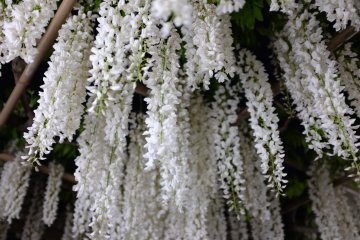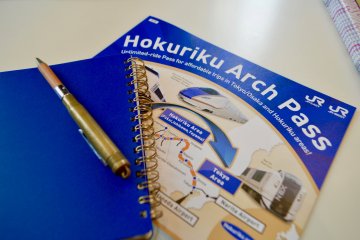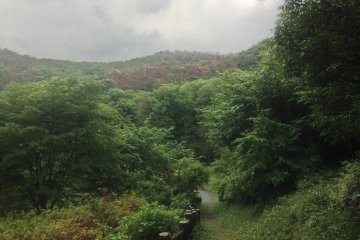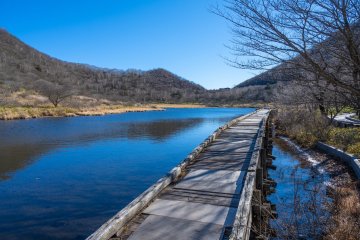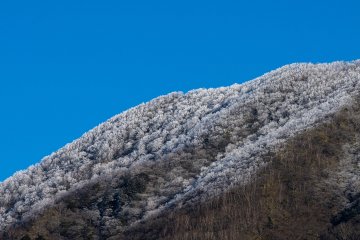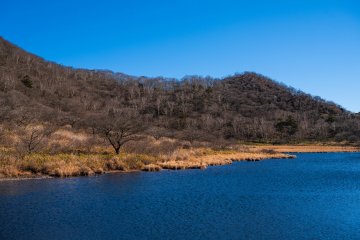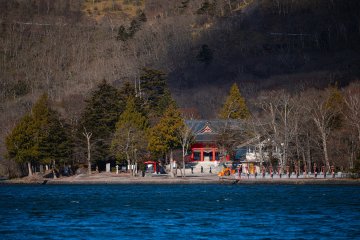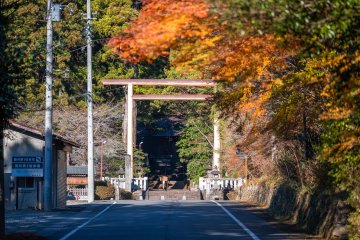Roughly an hour away from Tokyo by shinkansen (bullet train) in Gunma Prefecture lies the town of Maebashi. Although very close to Tokyo, traveling to Maebashi feels like entering a completely different region. Spacious and surrounded by mountains, it is the perfect short getaway to experience a different side of Japan away from the big city.
If planning a trip to another town seems overwhelming, let the Visit Gunma website help make your planning easy and fun. Along with an abundance of information on things to see and do, the site also offers a convenient itinerary tool which allows you to create a custom travel plan. By the time you’re done exploring, you’ll be ready to visit the region in-person with your customized itinerary!
Maebashi is easily accessed via the Joetsu Shinkansen from Tokyo Station. Travelers will reach Takasaki Station in less than an hour, where you can begin your trip if you wish. Takasaki Station is the largest and busiest station in the area, so it’s a natural starting point. However, another 15 minutes brings you to Maebashi Station, where it’s easier to rent a car to get out and explore. A rental car is by no means essential—plenty of public transportation options exist—but a car is probably the best option if possible.
Day 1
Mid-Morning To Lunch: Mt. Akagi Area

If you like nature and the outdoors, a great place to begin your trip is in the region around Mt. Akagi. With an elevation of 1,828 meters (almost 6,000 feet), this area has its own unique climate and scenery. A hike around the Akagi loop is possible if you’re in the mood, which takes about 4 hours. However, there is plenty to see and explore staying around Lake Onuma at the foot of the mountain.
If you’re looking for a shorter walk, you can enjoy a 30-minute leisurely stroll around Kakumanbuchi, a small marshy pond adjacent to the lake. The well-maintained trail and boardwalk make this an easy place to explore the beautiful nature of the region for almost any fitness or age level. Autumn is the perfect time to explore this area as it is full of beautiful fall colors. Even if you’re a bit late as I was, there’s still lots of natural beauty to enjoy. In the winter, expect lots of cold and snow. In fact, Lake Onuma freezes during the winter, and many people enjoy ice fishing during this time.

After enjoying the natural scenery of Kakumanbuchi, you can head over to Akagi-jinja Shrine to explore unique Japanese history and culture. It is unknown exactly when the shrine was founded, but it is believed to go back to at least 800 AD. There are a number of connected shrines in the area, including the Akagi-jinja Shrine in Miyosawa further down the mountain, which is a great place to stop on your way back into central Maebashi. Before you leave though, don’t hesitate to check out some of the lakeside restaurants, which serve local dishes along with more standard Japanese meals.

Afternoon – Evening: Gunma Flower Park

After heading down the mountain back to central Maebashi, take a stop at the Kaneko Seeds Gunma Flower Park. This park is really a massive garden, filled with flowers, Japanese gardens, and even a bamboo grove. Even during the autumn season there are plenty of flowers around the park grounds, but the star of the show is the vibrant autumn display. Various types of autumn trees display their fall foliage in late November and early December, including the famous Japanese maple trees, known as momiji.
At this time of the year, you should plan to stay around after the sun goes down. With the Christmas season comes an impressive display of seasonal illuminations that light up the park grounds after dark. One of the unique features of the Gunma Flower Park is the central viewing platform that makes it easy to see all of the lights from above. If you’re looking to enjoy fall colors and get in the Christmas spirit all at once, the Gunma Flower Park is the place to go!
Evening: Local Cuisine & Convenient Accommodations

As you head into the evening hours, don’t forget to check out some of the local flavors of the Maebashi region. Maebashi is famous for its pork, which is featured at many restaurants around town. There are also a number of other unique local restaurants, including one I visited which focuses on tofu! Whatever you choose, it will surely taste even better after a day full of exploring the natural beauty of the area.
There are many interesting accommodations available in Maebashi, but if you’re looking for a convenient location, plan your stay at the Hotel Metropolitan Takasaki. Located directly next to Takasaki Station, it’s the perfect spot to start your second day of travel, and boasts an excellent buffet breakfast filled with both western and traditional Japanese dishes.
Day 2
Morning: Free Observation Deck and Maebashi Park

After such a busy first day, you may want to start your second day off a bit more relaxed by visiting the Gunma Prefectural Office Observation Deck. This is an excellent observation deck on the top floors of the Prefectural Office, which is easily the highest building in the region. The free observation deck boasts incredible views of both the city and the surrounding mountains, including the Myogi mountain range, and the famous Mt. Asama, which is an active volcano that continues very small eruptions on a regular basis.
After you’ve enjoyed the views from the observation deck, head back down to the ground and check out the adjacent Rakuhodo Maebashi Park. This large park is a wonderful place to relax for a while, with both colorful leaves in the autumn and beautiful cherry blossom trees in the spring.
Late Morning – Afternoon: Rinkokaku House & Luna Park

As the day moves on, you will not want to miss the famous Rinkokaku which sits on the edge of Maebashi Park. Rinkokaku is a historic state guest house built originally in 1884, with additional portions added over subsequent years. The building thankfully was spared the devastation of World War II, and so remains as one of relatively rare original pre-war structures in the area. The traditional Japanese architecture of Rinkokaku is only rivaled in beauty by the views around the house gardens and by the house overlooking the Tone River (Japan’s largest river). Just like Maebashi Park, Rinkokaku has many lovely trees in the fall, and a number of cherry blossom trees that flower in the spring.
If you’re traveling with small children, you might find that some of these spots are a challenge, so why not reward their patience with a visit to Luna Park? This small amusement park is just across the street from Rinkokaku. There are various rides and snacks that are sure to make a child happy: and let’s be honest, it might make some adults happy, too!
Afternoon to Departure: Shikishima Park Kadokura Techno Rose Garden

As you near your time to return to Tokyo, the Shikishima Park Kadokura Techno Rose Garden is the perfect place to end the trip. If the name seems impressive, just wait until you seek the garden grounds! During the blooming season the garden is host to 7,000 roses of 600 different varieties. Even if you come late in the season, the garden is still worth exploring. Lovely woods, gazebos and even a garden greenhouse can be found here, and of course in the autumn you can find colorful autumn leaves as well.
The Maebashi region is truly the perfect getaway from Tokyo, and this 36-hour itinerary just scratches the surface of all there is to see and do. If you want to see more, I highly recommend spending some time on the Visit Gunma website. You’ll find lots of travel options, and using the simple itinerary tool will make trip planning painless and even fun.
No matter what itinerary you choose, you’ll surely be glad you chose Maebashi for your travels. Stunning mountain scenery, delicious local food, and unique history and culture are waiting for you just an hour away!



